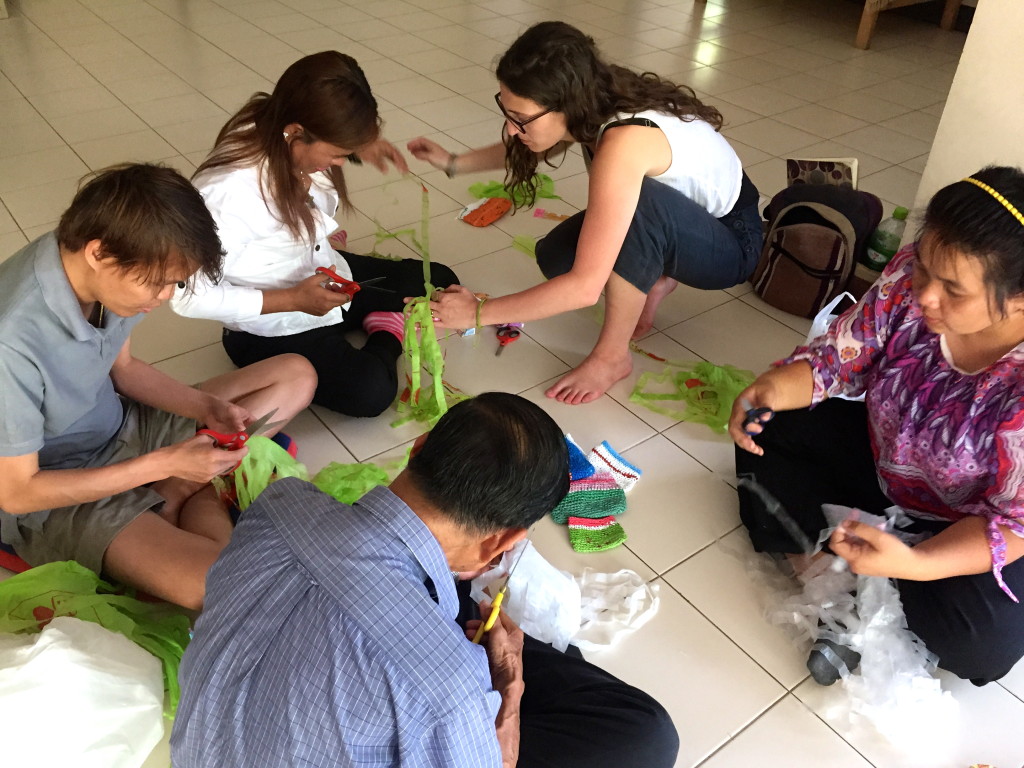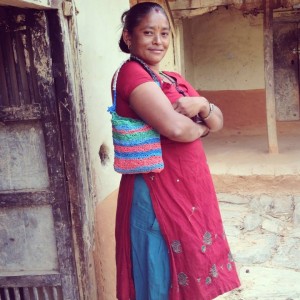Social Enterprises Offer a New Approach to International Development

Working with a local community in Thailand | Picture by Cara Walden

In a world that has created a division between the rich and poor, there are people searching for answers on how to even the playing field. Many of these people reside in the development field. Development comes in all shapes and sizes; there are the do-gooders of the Peace Corps and the admirable efforts of Fair Trade organizations. While we define these various professions within the field of development, what does that really mean? What are they trying to achieve? As a professional in the field I am still searching for these answers. But after becoming involved in the sector of social enterprises, it is clear to me that business and wealth in developing countries can be used to solve social issues around the world, offering a way to use globalization to help marginalized communities rise in the ranks.
While GDP can be an important indicator for certain aspects of a country’s economic stance on a global scale, in countries like India and Thailand, where the majority of people work in the informal sector, GDP is not representative of individual well-being. It is time to take a different approach. Economist Amartya Sen argues that income and GDP measures are not accurate indicators of development. Instead, he explains in the article “Human Development and Decent Work,” it is the freedom people have to achieve the life they want what tells the story.
During a time when major development institutions are viewed as incompetent, unproductive, and unresponsive, social entrepreneurs and the enterprises they build can offer creative and innovative solutions to global poverty issues. Social entrepreneurs are motivated by a social cause they feel passionate about, with profit being a means not an end.
Defined as as an organization seeking market-based solutions to social problems, social enterprises vary in approach but their overall goal is to expand freedoms to a specific set of communities. As a former Peace Corps volunteer, as well as someone who has recently started their own social enterprise, I can affirm that it is a very different way to approach development. While both require working at the ground level, a social enterprise puts power back into the individual’s hands through sustainable and long-lasting economic opportunities.
While in the Peace Corps, I felt that my lack of experience and limited amount of time prevented me from making a long-lasting impact. I was not able to choose who the people I worked with were or the type of work I was doing. But in creating a social enterprise, I was able to work within a community I understood, and develop a project I felt passionate about. The strong sense of passion that is so common with social enterprises helps to drive a stronger commitment from the entrepreneurs themselves.
Fieldwork is the first step to understand any community. But often times, the development worker will have different concerns than those of the community. What makes social enterprises so unique is that the development worker’s passion and what the community wants coincide. Social enterprises work to combine passion with priority.

At the same time, efforts focused on something that a marginalized community is passionate about can also compliment priorities within the Western world. Take for instance female empowerment. While it is a high priority in developed countries, it’s not always the case in the rest of the world. But there in some of the developing countries the informal market of handcrafted goods is deeply rooted in their cultures. And that is a job generally done by women. While they may be shunned from many economic opportunities, working within the craft industry is a way for them to contribute without having to battle cultural norms. Handmade crafts can generate profit in a global market, and therefore, developed countries will invest in these products making it possible for women to greatly contribute to their household income, which in turn changes their value within society.
By empowering such communities, the growing industry of social enterprises has great potential to deeply influence the field of development. This approach highlights the places in which need meets passion, which may well be the start to developing sustainable and long-lasting partnerships across the globe.
Cara Walden is an M.A. candidate at Concordia University, where she is pursing a degree in International Development and Service. She completed her undergraduate degree in Sociology at Hobart and William Colleges and traveled extensively during her time there. Following graduation Cara was a Peace Corps Volunteer in the Caribbean followed by a year long fellowship as the youth development director for an NGO in Nepal. Her interests range from international development to Fair Trade and socially conscious businesses. She is also the founder of the social enterprise Trashé Designs.






